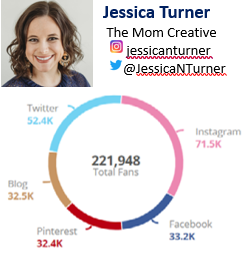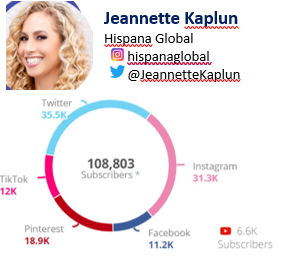A panel discussion at AIS 2022 focused on harnessing the power of trusted online communities to empower and educate patients.
“Even patients with chronic illness might spend only a few hours a year with a doctor or nurse, but they spend 5,000 waking hours each year engaged in everything else — including deciding whether to take prescribed medications or follow other medical advice, deciding what to eat and drink and whether to smoke, and making other choices about activities that can profoundly affect their health.” —Asch DA, Muller RW, Volpp KG. Automated Hovering in Health Care — Watching Over the 5000 Hours. New Engl J Med. 2012;367(1):1-3.
With over 80% of the U.S. population holding a social media account, virtual communities and interactions are a central feature of daily life for many.1,2 A growing number of Americans — with growing representation across different sexes, ages, races and ethnicities — use social media to get news, share information and entertain themselves.2 Social media is also used to intentionally seek out health-related information online, though this specific behavior has only modestly increased over the past decade.2 Furthermore, with the increasing spread of mis- and disinformation on social media sites, individuals may have difficulty discerning the credibility of information sources on these platforms.2,3 There is tremendous opportunity to introduce high-quality, science-based education about various health topics into established social media communities, thereby reaching engaged audiences in trusted online spaces during the 5,000 waking hours they are not in direct contact with healthcare providers each year.
A key to accessing these established communities? Social media influencers.
Attendees at the Alliance Industry Summit (AIS) 2022 in Orlando had the opportunity to meet two social media influencers during a panel discussion: Jeannette Kaplun of Hispana Global and Jessica Turner of The Mom Creative. These entrepreneurs shared details around how they create content, the importance of engagement, keys to long-term success and their experiences with sponsored medical education campaigns. Highlights from our conversation are summarized here.
What Is a Social Media Influencer?
The conversation started with the foundational question: What is a social media influencer? In terms of a definition, according to the Influencer Marketing Hub, social media influencers are:4
“People who have built a reputation for their knowledge and expertise on a specific topic. They make regular posts about that topic on their preferred social media channels and generate large followings of enthusiastic, engaged people who pay close attention to their views.”
Beyond this definition, the panelists stressed that a defining aspect of the work they do on their social media sites is content creation. That is, they develop original content to communicate a specific message to their audiences and create a community online with the goal of helping their followers make decisions on a variety of topics, from what to make for dinner to what to wear and even how to make healthcare decisions. In a sense, many people turn to influencers on social media for ideas and tips today, just as they would turn to magazines in the past. By creating content that is meant to provide advice on what to do in different situations, individuals like Jeannette and Jessica fall into a separate category from personalities online who influence through their celebrity, for example. They operate as online media companies, and being a content creator and social media influencer is a full-time job rather than a hobby.
What Do Influencers Know About Their Audiences?
Social media influencers have several tools at their disposal to learn about the size and scope of their followers online. For example, Instagram, Facebook, blogs and other social websites provide data analytics to content creators detailing information about where followers are geographically, what days they are active, their gender and the reach of specific pieces of content. Google Analytics is another powerful tool that provides very granular information about influencers’ followers.


Beyond data on who their followers are, social media influencers like Jessica and Jeannette are even more interested in measurements that illustrate the engagement of their audiences:
- How long individuals have been a follower
- Clicks
- Comments
- Direct messages
- Saves/shares of content
It is important to note that a follower number alone is a poor predictor of whether a specific campaign with an influencer will be successful or not. Rather, the audience’s engagement with an influencer’s content across different platforms is a far more accurate predictor of success.
How Do Influencers Cultivate Engagement With Their Audiences?
Social media influencers like Jeannette and Jessica are interacting with their audiences on a daily basis. They answer their followers’ questions and use storytelling to bring honesty and their own vulnerability to conversations, thereby establishing trust and building a sense of community on their platforms.
“The power of storytelling not only allows you to connect on a different level, but also it makes people in a very lonely world feel connected to somebody else who has the same struggle and maybe give them hope that there are different things that you can do. Or, at least you can go through whatever difficulties you're going through with somebody else who understands you and can cheer you on as a trusted friend.”—Jeannette Kaplun
What Makes Successful Patient Education Campaigns on Social Media?
Social media influencers are very selective with the content they bring to their audiences, and they work tirelessly to establish their brand and overall “voice.” Both Jeannette and Jessica agreed that they willingly talk about health topics that they have personally experienced, but they do not limit conversations to these areas. Rather, they are open to opportunities to learn about and discuss a broad array of topics in a relatable way, provided they are relevant to their audiences.
“The pandemic has really opened up the opportunity to lean into partnering with content creators and folks who are communicating about [health-related] topics on social media. People have gotten increasingly comfortable with receiving healthcare information online, from trusted voices. Now is a really great opportunity to work alongside healthcare providers to make sure that information is getting out to these communities in a way that they're going to receive it. That's why these partnerships are so powerful.” —Jessica Turner
Finally, there are some pitfalls to be aware of that can undermine the effectiveness of sponsored educational campaigns on social media and negatively impact audience engagement:
- The information is presented in a manner that does not align with the influencer’s established brand in either its look or voice.
- The tone of the information sounds “fake” or like it is being read from a script.
- The sponsor does not engage with the influencer as a true partner and disregards input about what is best for the audience.
Summary
Partnerships with social media influencers are an effective means for bringing evidence-based, health-related information into trusted online communities. Supported by the trust and engagement influencers cultivate with their audiences, education provided on social media platforms can unlock opportunities to disseminate best practices and helpful tips on maintaining good health, effectively managing chronic diseases and empowering individuals to engage with their healthcare teams.
References
- https://www.statista.com/statistics/273476/percentage-of-us-population-with-a-social-network-profile/. Accessed June 24, 2022.
- Chou WS, Gaysynsky A, Trivedi N, Vanderpool RC. Using Social Media for Health: National Data from HINTS 2019. J Health Commun. 2021;26(3):184-93.
- Kington R, Arnesen S, Chou W-YS, et al. Identifying Credible Sources of Health Information in Social Media: Principles and Attributes. NAM Perspectives. 2021. Discussion Paper, National Academy of Medicine, Washington, DC. Available at: https://nam.edu/identifying-credible-sources-of-health-information-in-social-media-principles-and-attributes/. Accessed June 27, 2022.
- Influencer Marketing Hub. What is an Influencer? – Social Media Influencers Defined [Updated 2022]. Available at: https://influencermarketinghub.com/what-is-an-influencer/. Accessed June 27, 2022.

Allison Gardner, PhD, CHCP, is the senior vice president of educational strategy and content at Med-IQ. She is passionate about innovations in healthcare education that meet learners where they are with engaging content.